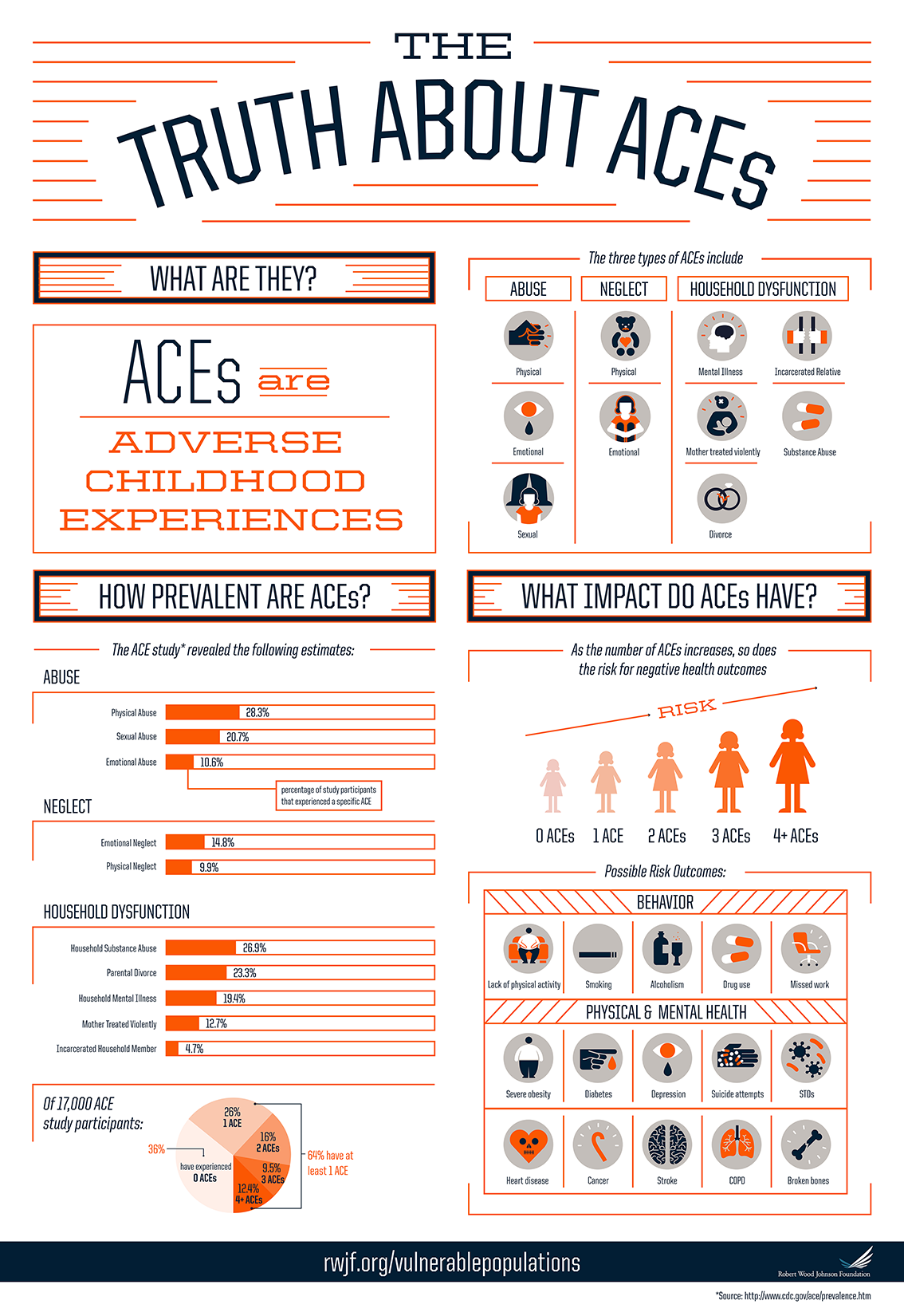The health and well-being of children is strongly related to the environmental conditions that they grow up in. A growing body of research has found strong links between adverse childhood experiences and long-term negative effects on children across the lifespan. The term adverse childhood experiences (ACEs) is used to refer to potentially traumatic events that can have lasting negative effects on health and well-being. The term ACE originates from an ongoing research project that looks at what impact traumatic events in childhood have on future social and health outcomes. The below infographic, published by the Robert Wood Johnson Foundation as part of their series on ACEs, provides some details on the prevalence of ACEs and their impact.
The three types of ACEs include abuse, neglect and household dysfunction. A large U.S. study has revealed that a significant portion of its study participants have a history of ACEs. Over a quarter of all participants reported physical abuse, and 20% of participants reported sexual abuse. Under the household dysfunction header, 27% of participants reported the presence of household substance abuse and 12.7% of participants reported domestic violence against their mother. Over 60% of all participants reported at least one ACE. These are startling figures.
An increase in the number of ACEs corresponds with increased risk for several negative outcomes, meaning an individual with three ACEs is significantly more likely to experience poor health outcomes than an individual with no ACEs. These risk outcomes can be broken up into two main categories: risks to behavioural trends and risk to physical and mental health. Behavioural risks include things like low physical activity, smoking, alcoholism and drug use. Poor behavioural outcomes can function in causal pathways leading to poor physical and mental health outcomes. Physical health outcomes that have shown strong correlations with ACEs include severe obesity, diabetes, contracting STDs or heath disease, and even getting cancer. Mental health outcomes associated with ACEs include depression, as well as affective and anxiety disorders.
In 1997, researchers working with the New York State Psychiatric Institute conducted a study to see if adverse childhood experiences were risk factors for homelessness. 92 individuals who had previously experienced homelessness were compared with a control group of 395 individuals who had no prior homelessness. Telephone surveys, designed with a focus on childhood physical and sexual abuse and inadequate parental care, were administered to participants. Researchers found that a lack of parental care significantly increased subsequent homelessness. The same trend was observed for individuals who had experienced physical abuse; these individuals were 16 times more likely to have experienced homelessness than their counterparts who had not experienced physical abuse. Researchers concluded that adverse childhood experiences are “powerful risk factors for adult homelessness”.
The ACEs study provides a great platform for discussions on the importance of healthy childhood development on the lifespan. Increasing awareness about the link between negative health outcomes can help develop innovative prevention and treatment approaches that can help reduce risks associated with ACEs.

